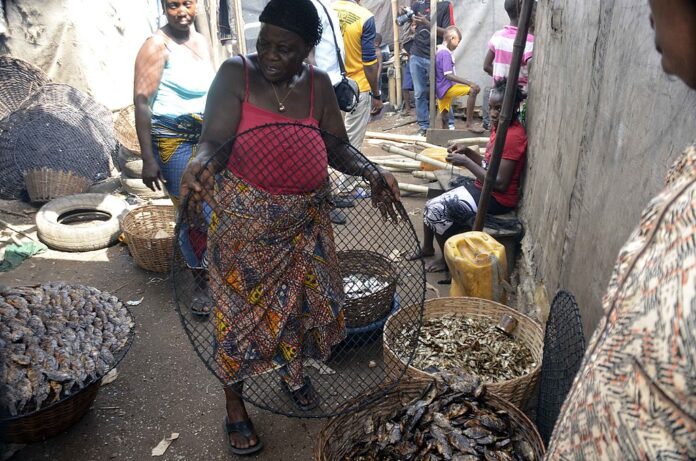“They have over-commercialized Lagos. What government wants is Makoko’s land without Makoko’s people. We say a resounding no to it.”
By Ishaya Ibrahim
Leaders in Makoko, a fishing community in the Yaba area of Lagos State, have raised an alarm that the state government was putting them in harm’s way by dredging the Atlantic, thereby exposing them to the wild of flooding.
They also say that the state government was aggressively sand-filling the water bodies in preparation for handing the area over to the ‘high and mighty’ in the society.
This is aside that the sand-filling was disrupting the aquatic balance and crippling the people’s fishing occupation.
In a forum organized by the Health of Mother Earth Foundation (HOMEF) for community leaders, civil society organisations and the media on Friday, March 3, leaders of Makoko lamented the hardship caused to them by the sand-filling and dredging works ongoing on the water bodies and shorelines of Makoko.

One of the leaders of Makoko, Elder Claudius Akintimehin, said the dredging and sand-filling make them vulnerable to flooding.
RELATED
Dredging, sand-filling, demolition: The plight of Makoko fishers, as Nnimmo Bassey parleys them
He appealed to the government to consider that they are fisher folks who make a living from the natural environment. “Due to our occupation, we live along the river line. We watch the water, we watch the sky to know the movement of fish. That is our trade and that is who we are. In Makoko, you will find fish taller than a human being. Our wives also make a living from it by processing, drying and selling the fish. So, we appeal to the Lagos State government to stop the dredging.”
Another leader in Makoko, Evangelist Dosunga Isaac, added: “I was born in Makoko over 70 years ago. When people are saying dredging, they don’t know the impact. We have seven canals that empty into the Lagoon. If they sand-fill that place, nobody can stay at Yaba.

“Where they have already sand-fill used to be where I fish and get my daily bread. I’m no longer able to fish there. So, please, they should help us beg the government to let us be. And we always voted APC because they are the ruling party, and yet they don’t want us to survive,” he said.
Eminent environmentalist, Dr Nnimmo Bassey, said the sand-filling of wetlands around Makoko means exposing the community to flooding.
He said instead of the government being preoccupied with such ideas as how to provide Makoko with schools, electricity, water and other social services, they are bent on taking their land and handing it over to those with political and economic power.
Executive director at CAPPA, Akinbode Oluwafemi, said when the government created the Ministry of Waterfront, he thought the aim would be to look into the plight of communities at the waterfronts. “But it has now become the agent for land grabbing. They have over-commercialized Lagos. What government wants is Makoko’s land without Makoko’s people. We say a resounding no to it.”

Executive director of the Centre for Children’s Health Education, Orientation and Protection (CEE-HOPE), Betty Abah, says the dredging and sand filling carried out by the Lagos government is an existential threat to Makoko and its people.
She recalled in 2012, the Babatunde Raji Fashola government’s attempt to sack the community with only 72 hours’ notice. She said it took local and international pressure for the government to suspend the plot. She feared that the government hadn’t given up on that plan to take over the place and give it to the rich.
“In Makoko, you have very talented children with huge prospects. If they are displaced, what will be their fate?” she queried.
Stephen Odumare of HOMEF says Makoko is rich with diverse people, cultures, and history, saying if the dredging continues, what would be the fate of the place?













